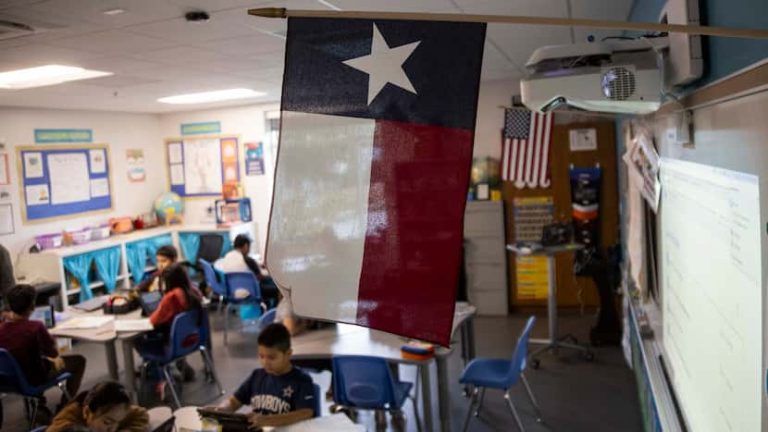Marlene Tero Fabian grew up speaking Spanish at home and initially struggled in English classes in the Dallas Independent School District.
But she remembers one elementary school teacher who gave her special support.
“Slowly, I was able to gain confidence in speaking English,” said the UT Dallas student majoring in education.
Now, Tello hopes to be that kind of teacher for other students in Dallas, as she spends the majority of her final year of college at Cochran Elementary School, just 10 minutes from her alma mater.
At Cochrane, she will be a teacher trainee, working alongside a supervisor in the classroom and earning up to $30,000. This research-backed model gives aspiring educators real-world experience before working with their own groups of students.
This is the first year UNT Dallas has sent paid teacher interns to DISD, officials said. Five upperclassmen will work with kindergarten through second-grade mentor teachers. They will be placed in bilingual or ESL classrooms, positions that are often difficult for districts to fill because of a shortage in teacher certification.
Christine Lemley, dean of the School of Education, called the model a game-changer.
“Residents get more classroom time, more time with students, and become accustomed to the role of teacher,” she says, “which increases retention, which increases persistence, and more importantly, it improves student learning.”
UNT Dallas students were required to pass a state-mandated certification exam before entering the program, and were guaranteed employment with DISD at the end of their training.
“The benefit is they get acclimated to the expectations of our district and the culture of our district,” says Sandra Baptista, DISD’s student teacher and special initiatives coordinator, “and we hope they embrace that, and then when they transition to full-time teaching, they feel like they’ve been a part of the district all along.”
Expanding teacher training programs is frequently cited by education advocates as a potential solution to the shortage. When the Texas Teacher Vacancies Task Force released its list of recommendations last year, it urged the state to establish and fund teacher training pathways.
The task force report describes the training as a paid, one-year clinical training period conducted in public school classrooms, similar to the medical field model.
“Strong teacher preparation through teacher residency models could create a system that eliminates the need for new teachers,” the report said.
The report said new teachers teach at least 500,000 Texas students.
New teachers are less likely to achieve academic success in their classes, and they are more likely to be paired with students from poor families and kids of color, according to an analysis by the Texas Education Agency.
Meanwhile, a growing number of new teachers are not state-certified at all, meaning officials have no way of knowing whether they underwent rigorous training before entering the classroom.
Several bills aimed at recruiting and retaining teachers died during the most recent legislative session, including a proposal to subsidize resident payroll costs that would have given school districts between $22,000 and $42,000 per resident.
Although that effort failed, Texas officials have taken other steps to boost home values.
The State Board of Education in April approved the issuance of enhanced standard certificates for teacher candidates who complete the training route.
“This is a way for applicants to differentiate themselves,” State Board of Education Commissioner Will Hickman (R-Houston) said at the time. [school districts] These residents will be more visible when we try to hire teachers.”
Undergraduate students have long provided clinical instruction for free, but being able to pay young people for residency training would be beneficial, Lemley said. The Dallas Independent School District also offers stipends and retirement contributions to UT Dallas senior students.
“This shows student teachers that their work is valued and that it matters,” Lemley said.
The DMN Education Lab deepens coverage and conversation about pressing education issues critical to the future of North Texas.
The DMN Education Lab is a community-funded journalism initiative supported by Bobby and Lottie Lyle, Texas Community Foundation, Dallas Foundation, Dallas Area Chamber of Commerce, Dee Dee Rose, Garrett and Cecelia Boone, Meadows Foundation, Murrell Foundation, Solutions Journalism Network, Southern Methodist University, Sidney Smith Hicks and The University of Texas at Dallas. The Dallas Morning News will retain full editorial control of Education Lab journalism.

